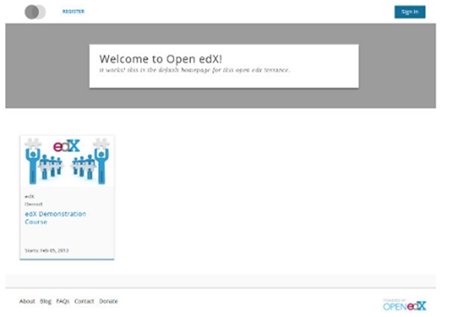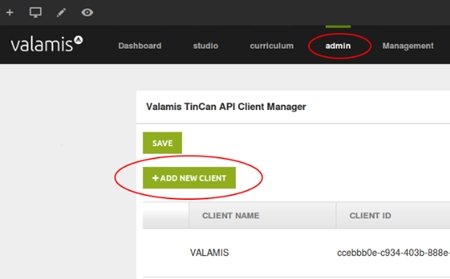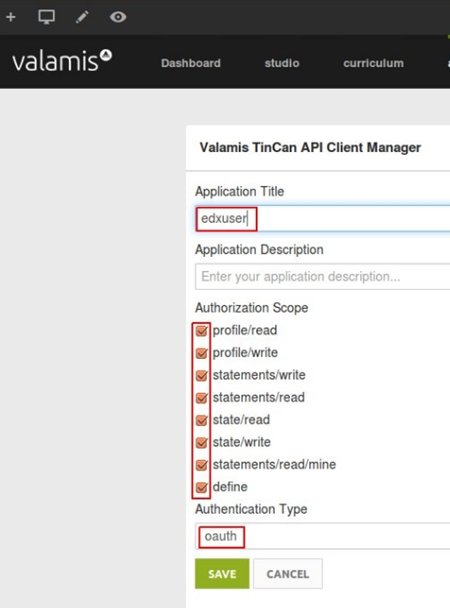Business case
Your association may investigate utilizing edX or some other course or learning administration frameworks. Numerous substantial associations can have different frameworks for learning or course exercises. Movement and combination tasks can be troublesome. In this way, it is essential to have the capacity to control the learning information for detailing, investigation and different purposes. This is the reason Experience API standard and Learning Record Store were made.
With this coordination, you can associate outer course condition to your Liferay stage for putting away the learning exercises to give single source to learning examination and gamification. You can utilize this way to deal with interface numerous cloud based or outsider learning answers for Valamis and Liferay. For instance, you can associate learning execution measurements to your association skills, HR measurements and social intranet stage.
About Open edX
The Open edX stage is an open source, course administration framework (CMS) that is produced by edX. The Open edX stage is utilized everywhere throughout the world to have Massive Open Online Courses (MOOCs) and also littler classes and preparing modules.
About Valamis
Valamis is an open source Learning Experience Platform (LXP), which empowers formal learning as well as social and casual learning. Valamis has solid accentuation on learning investigation, which are worked by means of Experience API (xAPI) and Learning Record Store (LRS). The blend of the Experience API and Valamis gives associations an effective apparatus to get precise examination of learning procedures of people and also of gatherings of students.
Introducing Open edX
It ought to be noticed, that the Official establishment direct for Open edX utilizing the Configuration archive just backings Ubuntu 12.04, however you can attempt to introduce it on a crisply introduced Ubuntu 14.04 server with this guide. In the event that you do, recall not to utilize default one-advance introduce contents, since it will check which stage rendition you are utilizing.
When I introduced the Open edX out of the blue, I confronted a few issues. I could work around them with following advances:
Keeping in mind the end goal to introduce the Open edX on Ubuntu 14.04 server, do the accompanying advances:
1. Refresh and update able bundles
sudo apt-get update
sudo apt-get upgrade
2. Introduce some extra bundles
sudo apt-get install -y build-essential software-properties-common python-software-properties curl git-core libxml2-dev libxslt1-dev python-pip python-apt python-dev libxmlsec1-dev swig
sudo pip install --upgrade pip
sudo pip install --upgrade virtualenv
3. Clone the design store
cd /var/tmp
git clone -b release https://github.com/edx/configuration
You ought to permit watchword based SSH verification. Alter record:
configuration/playbooks/roles/common/defaults/main.yml
what's more, set COMMON_SSH_PASSWORD_AUTH to "yes".
4. Introduce necessities
cd /var/tmp/configuration
sudo pip install -r requirements.txt
5. Run the edx_sandbox.yml playbook in the arrangement/playbooks registry
cd /var/tmp/configuration/playbooks && sudo ansible-playbook -c local ./edx_sandbox.yml -i "localhost,"
6. Run Open edX
Go to http://localhost and attempt Demonstration course

Investigating
- In the event that you got a message this way: H4
update-alternatives: error: no alternatives for libblas.so.3gf
at that point you need to change the record:
/var/tmp/configuration/playbooks/roles/edxapp/tasks/python_sandbox_env.yml
as takes after:
Supplant this
command: update-alternatives --set libblas.so.3gf /usr/lib/libblas/libblas.so.3gf
with
command: update-alternatives --set libblas.so.3 /usr/lib/libblas/libblas.so.3
and after that supplant this line
command: update-alternatives --set liblapack.so.3gf /usr/lib/lapack/liblapack.so.3gf
with the accompanying
command: update-alternatives --set liblapack.so.3 /usr/lib/lapack/liblapack.so.3
2. On the off chance that you got message this way:
msg: Failed to validate the SSL certificate for download.elasticsearch.org:443. Use validate_certs=no or make sure your managed systems have a valid CA certificate installed. Paths checked for this platform: /etc/ssl/certs, /etc/pki/ca-trust/extracted/pem, /etc/pki/tls/certs, /usr/share/ca-certificates/cacert.org /etc/ansible
at that point you need to adjust the document:
/var/tmp/configuration/playbooks/roles/elasticsearch/defaults/main.yml
by supplanting https with http.
Design Open edX for Valamis utilizing Experience API
For the subsequent stage we arrange Experience API mix between Open edX and valamis. Open edX will go about as an Experience API customer and send explanations to Learning Record Store in Valamis. Customer will confirm utilizing secure OAuth to LRS.
After you have introduced Open edX stage and Valamis effectively, you ought to introduce edx-xapi-connect
$ git clone https://github.com/adlnet/edx-xapi-bridge.git
$ cd edx-xapi-bridge
$ virtualenv env
$ source env/bin/activate
(env)$ pip install -r requirements.txt
(env)$ deactivate
Alter the document xapi-connect/settings.py and change the properties to coordinate your condition.
Arranging settings.py document: in this record you ought to supplant 3 fields, where
LRS_ENDPOINT = 'http://site.com/valamis-lrs-portlet/xapi/'
LRS_USERNAME and LRS_PASSWORD you can get, when you are make new record in Valamis Client Manager.
For instance, for make new client in Valamis, open 'http://site.com/web/valamis/administrator' (you have to setup Valamis Admin portlet and your url may fluctuate) and click "+ADD NEW CLIENT" catch

at that point compose Application Title, for instance, edx and stamp all checkboxes at "Autorization Scope". Check, that Authentication Type is oauth and snap "Spare".

After that you can get "customer id" and "customer mystery", where "customer id" is LRS_USERNAME and "customer mystery" is LRS_PASSWORD. You ought to compose all esteems with single statements.

In the wake of arranging settings.py record you can run edx-xapi-connect
$ source env/bin/activate
(env)$ python xapi-bridge [watchfile]
(env)$ deactivate
where [watchfile] is the way to the log to be viewed. Default esteem [watchfile] is/edx/var/log/tracking.log. Ensure the client account running the xapi-connect has consents to peruse the log record.
Posted on Utopian.io - Rewarding Open Source Contributors
